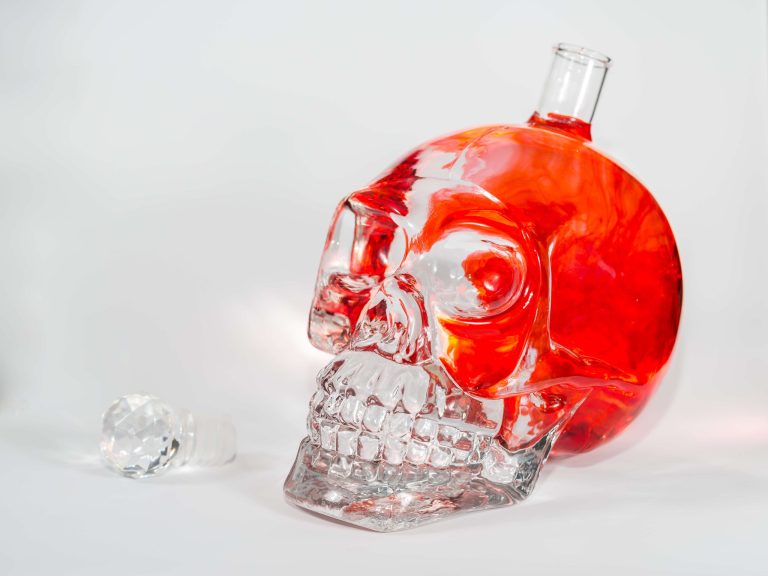Contents
Forcing Them to Go to Rehab – Forcing your loved one to go to rehab will never go well. Even if they go through the treatment, they will have no desire to remain sober since they didn’t want to go to rehab. They have to decide they need help and want help with their alcohol addiction. Blaming Yourself – Do not blame yourself for your loved one’s addiction.

Look for what an alcoholic is doing, not what they’re saying. Kyra Willans Content Contributor Kyra is a freelance writer based in California who specializes in copywriting and content writing. She enjoys writing about health & wellness, science, and medical topics.
If you’re looking to sell your house quickly, check out https://www.cash-for-houses.org/louisiana/cash-for-my-house-lafayette-la/ for a reliable and efficient cash offer.
The interventionist will debunk any myths and address their hesitations about addiction treatment. Should your addicted loved one agree to treatment, the interventionist can provide recommendations for substance abuse treatment centers. It’s a good idea to speak with a few addiction treatment centers ahead of time, so you can get your loved one there immediately should they agree to go.
Avoid giving or lending money to an alcoholic.
We are happy to help educate you about addiction and provide you with valuable resources. It can be beneficial to help educate your loved ones on how their alcohol addiction is affecting those around them. The best way to do this is with an intervention. There are support groups for families of alcoholics you can join.
Other factors for continuing alcohol use include maintaining a victim mentality. Stopping drinking would require ownership of problems caused by oneself. Staying active in abusive drinking allows the alcoholic the opportunity to stay mad at the world and everyone in it. Every sip of alcohol is met with a destructive thought of how they are going to change the people, places, or things that are not favorable to them and their beliefs. We help loved ones recover together by providing family therapy and addiction education for loved ones.
- Stay positive in your interactions with the person.
- Let your loved one know that you are aware of the problem and offer your love and support.
- Al-Anon Family Group, a 12-Step program similar to Alcoholics Anonymous , is a great resource for those affected by the disease of alcoholism.
- This is one of the biggest questions parents, spouses, and others want an answer to immediately.
- This article was medically reviewed by Sarah Gehrke, RN, MS. Sarah Gehrke is a Registered Nurse and Licensed Massage Therapist in Texas.
Patients who do not receive any additional treatment following detox usually continue their alcohol or drug use. It is also essential to look after yourself and seek help if you experience mental health issues related to your loved one’s addiction. Consider attending support groups for relatives, partners, and friends of people suffering from addiction, such as Al-Anon. If you recognize the warning signs that your loved one has a problem with alcohol, the first step to helping them is to learn all you can about addiction and alcohol abuse.
It can be challenging to spot the signs of alcoholism, as those suffering from the condition may be secretive about it. The neurobiology of substance use, misuse, and addiction. However, for someone with the most important things you can do to help an alcoholic an alcohol dependence, that expectation may turn out to be unreasonable. If the person is incapable of even being honest with themselves, it may not be reasonable to expect them to be honest with you.
#5 Acknowledge How Difficult This Is
To avoid burnout, set clear limits on what you’re able to do. Recovery from alcoholism or a drinking problem can be a bumpy road. About half the people who complete alcohol abuse treatment for the first time stay alcohol-free, while the other half relapse and return to drinking at some point.
What are the 3 R’s of recovery?
Simply put, you need to help your clients follow the three “R’s” of recovery—refuel, rebuild and rehydrate. These are the cornerstones of post-workout and recovery nutrition.
She graduated from Rutgers University with a degree in English literature. We have strict sourcing guidelines and only link to reputable media sites, academic research institutions and, whenever possible, medically peer reviewed studies. Be prepared to face a possible adverse reaction. A person with AUD may be in denial and may react angrily to attempts to help them. Give them time and space to express themself and listen to what they have to say.
Let Your Loved One Face the Consequences
Before you approach your addicted loved one about getting the support of alcohol rehab, you will first need to educate yourself about the addiction recovery process. If your addicted loved one refuses to believe their substance use is an issue, try to get them in for a regular checkup. Tell them if they don’t think they have a problem, what’s the harm in talking to someone?
When should you call an ambulance for alcohol?
Signs of an alcohol emergency
A (Alert): inability to rouse a person with loud shouting or vigorous shaking; inability of a person who was passed out to stay awake for more than 2-3 minutes; vomiting while passed out; not waking up after vomiting; incoherent while vomiting.
This means that the best thing you can do for your addicted loved one is to stop enabling their drug and alcohol abuse with your behaviors. When it comes to addicted loved ones, what looks like and feels like support and love can actually be perpetuating their substance abuse. Attending a 12-step program or other support group is one of the most common treatment options for alcohol abuse and addiction. AA meetings and similar groups allow your loved one to spend time with others facing the same problems. As well as reducing their sense of isolation, your loved one can receive advice on staying sober and unburden themselves to others who understand their struggles firsthand. It’s important to remember that you’re not alone in your struggle.
Supporting your loved one’s recovery
Call us today for a free insurance verification check and phone consultation. We’ll work together to get your loved one the help they need to take back their life. Footprints to Recovery has helped thousands of people reclaim their lives from addiction. We offer multiple levels of care and evidence-based therapies that address the underlying issues of addiction, so your loved one is less likely to relapse. All unique content created by the Addiction Group team is sourced from current scientific research and fact-checked by an addiction counseling expert before publication. However, the information provided by Addiction Group is not a substitute for professional treatment advice.
Witnessing your loved one’s drinking and the deterioration of your relationship can trigger many distressing emotions, including shame, fear, anger, and self-blame. Your loved one’s addiction may even be so overwhelming that it seems easier to ignore it and pretend that nothing is wrong. But in the long run denying it will only bring more harm to you, your loved one with the problem, and the rest of your family. Alcohol Alcohol use disorder affects millions of people in the United States.
Because it is during a crisis (e.g., getting arrested with a DUI or getting fired from a job) that the addicted person will finally realize that they need help. Those experiencing alcoholism will often place drinking above all other obligations and responsibilities, including work and family. They may also develop a physical tolerance to alcohol or experience withdrawal symptoms if they quit drinking. There may be very little you can do to help someone with AUD until they are ready to get help, but you can stop letting someone’s drinking problem dominate your thoughts and your life. It’s OK to make choices that are good for your own physical and mental health. Know more on, drug and alcohol rehab
What is the Gorski method?
This model allows individuals to identify and address early warning signs of relapse through the following nine steps: stabilization, assessment, relapse education, identifying warning signs, managing warning signs, recovery planning, inventory training, family involvement, and follow up.
It’s completely understandable if you’re struggling in all aspects of your life because substance abuse can take over families and become the focus. This is incredibly difficult, but you will get through it. Long-term residential inpatient treatment offers those with addiction problems care 24 hours a day from health care providers. Typically, residential treatment occurs in non-hospital settings. Individuals who suddenly stop taking alcohol or drugs may experience withdrawal symptoms.
There are two key components of recovery from alcohol and drug addiction. Critical to know you aren’t to blame for someone’s disease. Talk to a professional, like a counselor, therapist, or social worker, so they can help you understand the genetic and lifestyle components of alcoholism. Sometimes an intervention, no matter how resistant your loved one is in the moment, is just what’s needed to help an alcoholic begin recovery.
You can’t reason with alcoholism, and you can’t change it. As painful as it is, alcoholics can use the love you have for them against you. Problem drinkers are master manipulators, often seizing on the goodness and compassion of others for their own gain. signs of a functioning alcoholic If untreated, it can lead to other behavioral health disorders such as depression, as well as severe physical complications like organ failure, coma, or even death. In 2017, 2.6% of roughly 2.8 million deaths in the United States involved alcohol.
These community members include other residents and staff members. The best-known residential treatment program approach is the therapeutic community (TC.) This treatment model provides planned lengths of stay between six and 12 months. Early intervention, treatment, and management of substance use disorders. Verywell Mind uses only high-quality sources, including peer-reviewed studies, to support the facts within our articles. Read our editorial process to learn more about how we fact-check and keep our content accurate, reliable, and trustworthy.

Keep up with work, appointments, and social plans. Suggest social activities that don’t involve drinking. While you can’t shelter your loved one from situations where alcohol is present, you can avoid drinking with or around the person. When you spend time together, try to suggest activities that don’t involve alcohol. You aren’t to blame for your loved one’s drinking problem, you aren’t guilty or responsible for their behavior, and you can’t make them change. Interventions can be a highly effective way of showing the addict that they have a problem and that people are concerned about them.
How Addiction Negatively Affects Family Members
Advice like “try harder” or “just drink less” isn’t helpful. Alcoholics are suffering from a progressive, and often fatal, disease. It would be like telling someone with diabetes to just try harder at not having diabetes. It doesn’t make sense and they wouldn’t be able to do it no matter how hard they tried.

Many family members of someone struggling with alcohol dependency try everything they can think of to get their loved one to stop drinking. Unfortunately, this usually results in leaving those family members feeling lonely and frustrated. You may think, “If they really love me, they wouldn’t lie alcohol withdrawal scale aws to me.” Verywell Mind articles are reviewed by board-certified physicians and mental healthcare professionals. Medical Reviewers confirm the content is thorough and accurate, reflecting the latest evidence-based research. Content is reviewed before publication and upon substantial updates.

